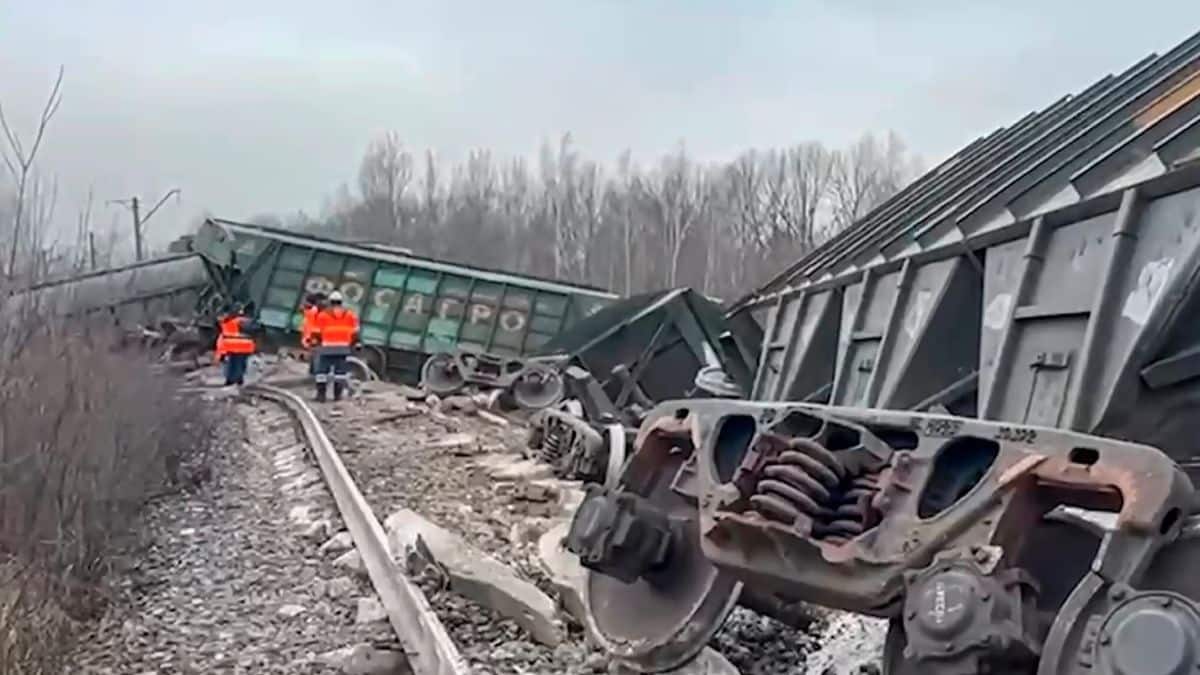A freight train derailed overnight near the southern Russian city of Volgograd, with authorities suspecting sabotage as the latest in a series of disruptive incidents plaguing the country’s rail network. The derailment, which occurred in the town of Kotluban approximately 300 kilometres from the Ukrainian border, has once again raised concerns about potential security threats to Russia’s vital transportation infrastructure.
The local branch of Russian Railways confirmed that “wagons from a freight train derailed due to the intervention of unauthorized persons” in Kotluban. While no casualties were reported, the incident disrupted rail services for several hours before operations resumed. A fuel storage tank and one of the wagons also caught fire, though emergency responders swiftly extinguished the blaze.
In April, a freight train derailed in the Bryansk region, near the border with Ukraine, after suspected sabotage on the tracks. Authorities blamed Ukrainian saboteurs for that incident.
Just weeks earlier, a massive fire engulfed a railway bridge over the Oka River in the Kaluga region, disrupting a key transit route for weeks. While the cause remains undetermined, Russian officials pointed fingers at Ukrainian forces or pro-Ukrainian saboteurs.
Kyiv has not claimed responsibility for the Kotluban derailment or any of the previous incidents. However, Russian authorities have consistently blamed Ukraine and its supporters for the series of apparent attacks on its rail infrastructure.
The vulnerability of Russia’s rail system has become a glaring concern amid the ongoing conflict with Ukraine. Railway networks play a vital role in transporting goods, personnel, and military equipment, making them potential high-value targets for disruption or sabotage operations.
As investigations into the Kotluban incident continue, Russian authorities are expected to further tighten security measures along critical rail routes. The series of suspected sabotage acts has exposed vulnerabilities in Russia’s ability to protect its transportation infrastructure, raising questions about the potential implications for military logistics and civilian supply chains.
While the motives and perpetrators behind these incidents remain shrouded in secrecy, the pattern of disruptions has heightened tensions between Russia and Ukraine, with both sides accusing the other of engaging in asymmetric warfare tactics. As the conflict drags on, the protection of strategic assets like railways is likely to become an increasingly pressing challenge for Russian security forces.

